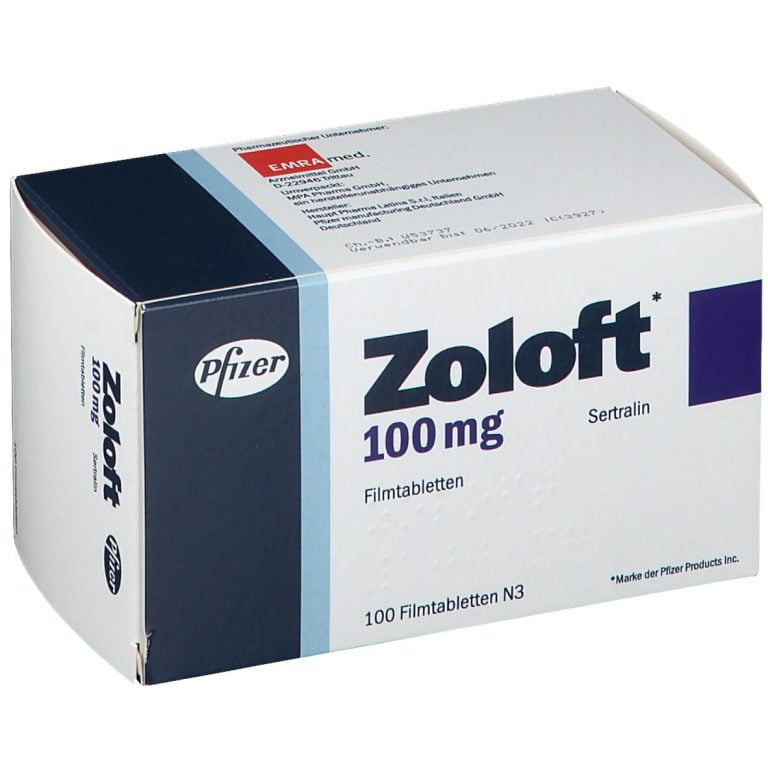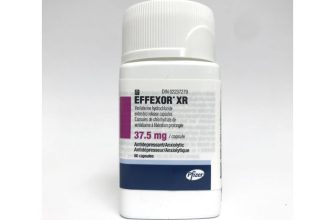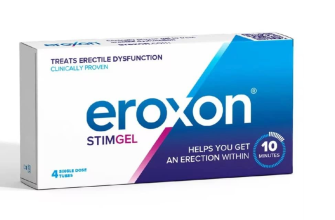Yes, you need a prescription to obtain Zoloft in Canada. Health Canada strictly regulates the sale of prescription medications, including antidepressants like sertraline (the active ingredient in Zoloft). This regulation ensures patient safety and responsible medication use.
To get a prescription, you’ll need to consult a licensed healthcare professional, such as a doctor or a nurse practitioner. They will assess your medical history, symptoms, and overall health to determine if Zoloft is the appropriate medication for you. This consultation is crucial for determining the correct dosage and monitoring potential side effects.
Once your healthcare provider approves the prescription, you can fill it at a licensed pharmacy. Be sure to inform your pharmacist about any other medications you are taking to avoid potential drug interactions. They can provide further guidance on proper medication use and storage.
Remember, obtaining Zoloft without a prescription is illegal in Canada and carries significant risks. Prioritizing a consultation with a medical professional guarantees safe and appropriate access to this medication.
- Zoloft: Prescription Requirements in Canada
- Understanding Zoloft and its Uses
- Major Depressive Disorder
- Other Approved Uses
- Important Considerations
- Seeking Professional Help
- Why a Prescription is Mandatory for Zoloft in Canada
- Protecting Patient Well-being
- Monitoring Potential Interactions
- The Dangers of Obtaining Zoloft Without a Prescription
- Incorrect Dosage and Interactions
- Unforeseen Health Complications
- Legal Ramifications
- The Process of Getting a Zoloft Prescription in Canada
- Gathering Information for Your Appointment
- Finding a Doctor or Healthcare Provider for Zoloft
- Cost Considerations and Insurance Coverage for Zoloft
- Potential Side Effects and Interactions of Zoloft
- Seeking Help and Resources for Mental Health in Canada
Zoloft: Prescription Requirements in Canada
You need a prescription from a licensed Canadian physician to obtain Zoloft in Canada. This applies to all forms of the medication, including tablets and liquid solutions.
Getting a Prescription: Contact your doctor or a psychiatrist to discuss your symptoms and determine if Zoloft is the appropriate treatment. They will assess your medical history and conduct a thorough examination before prescribing the medication. Online telehealth services may also offer consultations for prescriptions, but always verify their legitimacy and licensing.
Important Note: Never attempt to obtain Zoloft without a prescription. Purchasing medications from unregulated sources is illegal and potentially dangerous, as the quality and safety of the drugs cannot be guaranteed.
Pharmacy Dispensing: Once you have a valid prescription, you can fill it at any licensed pharmacy in Canada. Present your prescription and government-issued photo ID to the pharmacist.
Renewal: Your doctor will determine the frequency of your prescription refills. Contact your physician to renew your prescription as needed, prior to running out of medication.
Specific Concerns: If you have questions or concerns about Zoloft or your prescription, discuss these directly with your doctor or pharmacist. They are your best resource for accurate and personalized information.
Understanding Zoloft and its Uses
Zoloft, or sertraline, is a selective serotonin reuptake inhibitor (SSRI) antidepressant. Doctors prescribe it to treat several conditions.
Major Depressive Disorder
Zoloft effectively manages symptoms of major depressive disorder (MDD), including persistent sadness, loss of interest, sleep disturbances, and fatigue. Consistent use, as directed by your doctor, is key to experiencing its benefits.
Other Approved Uses
- Obsessive-Compulsive Disorder (OCD): Zoloft helps control unwanted thoughts and repetitive behaviors characteristic of OCD.
- Panic Disorder: It reduces the frequency and severity of panic attacks.
- Post-Traumatic Stress Disorder (PTSD): Zoloft can alleviate some PTSD symptoms, although other treatments may also be necessary.
- Premenstrual Dysphoric Disorder (PMDD): Zoloft can help manage severe mood swings and other symptoms associated with PMDD.
- Social Anxiety Disorder: It can lessen the fear and anxiety experienced in social situations.
Important Considerations
- Dosage: Your doctor will determine the appropriate dosage based on your individual needs and response to treatment. Never alter your prescribed dosage without consulting your physician.
- Side Effects: Common side effects include nausea, headache, sleepiness, and decreased sexual desire. These usually lessen over time, but you should report any concerning side effects to your healthcare provider.
- Interactions: Zoloft can interact with other medications, so inform your doctor about all the medications, supplements, and herbal remedies you are taking.
- Withdrawal: Abruptly stopping Zoloft can lead to withdrawal symptoms. Always taper off the medication gradually under your doctor’s guidance.
Seeking Professional Help
Zoloft is a powerful medication that should be used only under the supervision of a healthcare professional. They can help you determine if it’s the right treatment for you and monitor your progress throughout the treatment period. Regular check-ups are essential to ensure your safety and efficacy of the treatment.
Why a Prescription is Mandatory for Zoloft in Canada
Sertraline, the active ingredient in Zoloft, is a powerful medication affecting brain chemistry. Canadian regulations require a prescription to ensure patient safety and proper medical oversight. A doctor assesses your individual needs, medical history, and potential drug interactions before prescribing Zoloft. This careful evaluation minimizes risks of adverse reactions and ensures the medication is used appropriately.
Protecting Patient Well-being
Self-medicating with Zoloft carries significant risks. Incorrect dosage can lead to ineffective treatment or harmful side effects. A physician monitors your progress, adjusts dosage as needed, and addresses any concerns throughout your treatment. This personalized approach maximizes therapeutic benefits while minimizing potential harm. The prescription system ensures you receive the necessary support and guidance for safe and effective use of the medication.
Monitoring Potential Interactions
Zoloft can interact negatively with other medications. A healthcare professional identifies potential conflicts and guides you on safe medication combinations. This crucial aspect of prescription-based access protects you from dangerous drug interactions that could jeopardize your health. Remember, a doctor’s expertise is vital in managing these potential complications.
The Dangers of Obtaining Zoloft Without a Prescription
Don’t risk it. Buying Zoloft without a prescription exposes you to several serious risks. You might receive counterfeit medication containing incorrect dosages or harmful substances. This can lead to ineffective treatment, worsening symptoms, or dangerous side effects.
Incorrect Dosage and Interactions
A doctor carefully determines the correct Zoloft dosage based on your individual needs and health history. Incorrect dosage, whether too high or too low, can significantly impact your health. Furthermore, taking Zoloft without a doctor’s oversight increases the chance of harmful interactions with other medications you may be taking. This lack of personalized care can have severe consequences.
Unforeseen Health Complications
Zoloft can cause a range of side effects, some mild and others severe. Without professional medical supervision, you won’t receive timely intervention should complications arise. This includes monitoring for serotonin syndrome, a potentially life-threatening condition. Seeking medical help immediately is critical if such symptoms develop, but you may not be aware of them without expert guidance.
Legal Ramifications
Purchasing prescription drugs without a prescription is illegal in Canada and carries potential penalties. The risks are simply not worth it. Your health and well-being are far more important than the inconvenience of obtaining a prescription legitimately. A doctor can provide a safe and legal route to obtaining the treatment you need.
The Process of Getting a Zoloft Prescription in Canada
First, schedule an appointment with a doctor or psychiatrist. This can be done through your family doctor or by finding a psychiatrist specializing in mental health through online directories or referrals.
Gathering Information for Your Appointment
Before your appointment, compile a detailed health history. Include any existing medical conditions, medications you’re taking, and relevant family history of mental health issues. List your symptoms clearly and honestly, noting their frequency, duration, and severity. Be prepared to discuss your lifestyle factors, such as stress levels and sleep patterns, as these may impact diagnosis and treatment.
During the appointment, your doctor will conduct a thorough assessment, asking about your symptoms and medical history. They may perform a physical examination to rule out any other potential causes for your symptoms. Based on this evaluation, they will determine if Zoloft is the appropriate medication for you.
If Zoloft is prescribed, your doctor will provide instructions on dosage, administration, and potential side effects. They will schedule follow-up appointments to monitor your progress and adjust your treatment plan as needed. Remember to adhere to your doctor’s instructions carefully and report any concerns immediately.
Your prescription can be filled at a pharmacy. Many pharmacies offer convenient online ordering and delivery options. Always ensure you receive your medication from a registered and reputable pharmacy to ensure its authenticity and safety.
Finding a Doctor or Healthcare Provider for Zoloft
Start your search using online directories like the College of Physicians and Surgeons of your province. These sites often allow you to filter by specialty (psychiatry or family medicine) and location.
Consider your needs: Do you prefer in-person appointments, telehealth options, or both? Many doctors offer various appointment types now. Check their websites or call their offices to confirm.
Read online reviews carefully. While not definitive, reviews can offer insights into a doctor’s communication style, wait times, and overall patient experience. Focus on consistent themes rather than isolated comments.
Don’t hesitate to contact multiple clinics. Waiting lists for appointments with psychiatrists can vary; making several calls increases your chances of securing an appointment sooner.
| Province | Relevant Website (Example) |
|---|---|
| Ontario | cpso.on.ca |
| British Columbia | cpsbc.org |
| Quebec | cmq.org |
Remember to bring a list of your medications, medical history, and any questions to your initial consultation. This aids efficient communication and helps your doctor formulate the best treatment plan.
Cost Considerations and Insurance Coverage for Zoloft
Check your insurance plan’s formulary. This lists covered medications and their cost-sharing levels (copay, coinsurance). Many plans cover Zoloft, but the specific cost depends on your plan’s tier system.
Generic sertraline (the generic name for Zoloft) is significantly cheaper than the brand-name version. Ask your doctor if switching to the generic is an option. This can dramatically reduce your out-of-pocket expenses.
Explore manufacturer patient assistance programs. Companies sometimes offer financial aid to help patients afford their medications. These programs vary widely, so check the eligibility requirements for Pfizer’s program for Zoloft.
Use a prescription drug discount card. Several companies offer cards that can lower prescription costs at participating pharmacies, even with insurance. Compare different cards to find the best deal for your needs.
Consider using a mail-order pharmacy. Mail-order pharmacies often offer lower prices on prescriptions, especially for medications you take regularly, like Zoloft. Compare pricing between your local pharmacy and mail-order options.
Always discuss cost concerns with your doctor or pharmacist. They can advise on strategies to manage medication costs and explore available resources. They may also know of local programs that provide assistance.
Remember: The cost of Zoloft can fluctuate. Prices vary depending on your location, pharmacy, and insurance coverage. Actively manage your medication costs to ensure you receive the treatment you need without undue financial burden.
Potential Side Effects and Interactions of Zoloft
Zoloft, like all medications, can cause side effects. Common side effects include nausea, drowsiness, insomnia, dry mouth, and constipation. These usually lessen as your body adjusts to the medication. Less common, but still possible, are dizziness, tremor, and changes in appetite or weight.
Serious side effects are rare but require immediate medical attention. These include suicidal thoughts, serotonin syndrome (characterized by high fever, agitation, and muscle rigidity), and seizures. Inform your doctor immediately if you experience any of these.
Zoloft interacts with several other medications. Specifically, avoid combining it with MAO inhibitors (like phenelzine or tranylcypromine). Consult your doctor or pharmacist about potential interactions with other medications you are taking, including over-the-counter drugs and herbal supplements. This is crucial for safe medication use.
Changes in dosage should only be made under your doctor’s guidance. Never abruptly stop taking Zoloft without consulting your physician, as this can lead to withdrawal symptoms.
This information is not a substitute for professional medical advice. Always discuss your concerns and medication use with a healthcare provider.
Seeking Help and Resources for Mental Health in Canada
Need help? Connect with a healthcare provider. Your family doctor is a great starting point. They can assess your needs and refer you to a specialist if necessary.
Canada offers various mental health services. Here are some key resources:
- Provincial and Territorial Health Services: Each province and territory provides its own mental health programs. Contact your provincial or territorial health authority for information on available services in your area. Their websites usually have detailed listings.
- Crisis Services Canada: This national helpline offers confidential support 24/7. Dial 1-833-456-4566 or text 45645.
- Kids Help Phone: Provides confidential counseling and support for young people. Call 1-800-668-6868 or visit their website for online chat options.
- The Canadian Mental Health Association (CMHA): The CMHA offers a range of services, including support groups, educational resources, and referrals to treatment providers. Find your local branch through their website.
Finding the right support can take time. Be patient with yourself.
- Self-Care Strategies: Prioritize sleep, healthy eating, and regular exercise. These can significantly impact your mental well-being.
- Support Networks: Lean on friends, family, or support groups for emotional connection and understanding.
- Therapy: Consider therapy, such as Cognitive Behavioral Therapy (CBT) or other evidence-based approaches, to address underlying issues.
Remember, seeking help is a sign of strength, not weakness. Your mental health matters.










